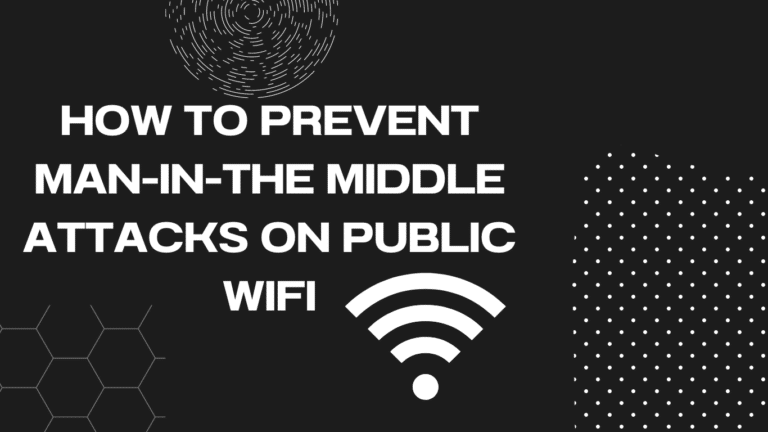Facebook is a powerful platform for connecting with friends, family, and communities. However, it’s also a target for scammers looking to exploit unsuspecting users. Here are 10 Facebook scams to be aware of, along with tips on how to protect yourself.
1. “I Can’t Believe He/She Is Gone” Scams
This scam exploits your emotions by claiming someone you know or a celebrity has passed away and promises more information if you click the link provided in the post or message. The links often lead to a fake Facebook login page to steal your login credentials or to download malware and viruses.
Prevention Tips
- Check the sender’s profile and confirm the news from other reliable sources before clicking on any links.
- Use two-factor authentication on your Facebook account.
- Be cautious of unexpected messages about personal tragedies.
2. “Is This You?” Scams
Similar to the “I Can’t Believe He/She Is Gone” scams, the main aim is to get you to click on a link to steal your login credentials or make you download malware. You will receive a message from someone you may or may not know saying, “Is this you?” with a link to a video or photo, often suggesting it’s an embarrassing or compromising image of yourself.
- Always verify with your friend outside of Facebook before clicking on such links because their accounts could be hacked.
3. Charity Scams
Charity scams exploit people’s goodwill and desire to help those in need. Scammers create convincing charity pages, posts, or messages, claiming to raise funds for disaster relief, medical expenses, or other causes, but they end up pocketing the money.
- Research the charity using sites like Charity Navigator or GuideStar.
- Be cautious of charities that spring up immediately after high-profile events(like wars and natural disasters).
- When donating online, use secure payment methods such as credit cards or reputable payment services. Avoid wire transfers or sending cash or cryptocurrencies.
4. Fake Prizes and Giveaways Scams
Scammers create convincing pages that mimic well-known brands and organizations, promising free giveaways, prizes, gift cards, and other luxurious items. In exchange, they ask for sensitive information such as credit card numbers, Social Security numbers, and more. Some also request upfront payments before you can claim your prize.
Prevention tips
- Verify the legitimacy of the contest by checking the official website of the brand.
- Be wary of giveaways that require excessive personal information or have unclear terms and conditions.
- Keep in mind that legitimate contests never ask for a payment to claim a prize.
5. Hacked or Cloned Friend Accounts
Scammers gain control of or clone a Facebook account and then contact the victim’s friends or family, pretending to be in an emergency and urgently asking for money. They use emotional manipulation to create urgency.
Prevention Tips
- Verify suspicious requests by contacting your friend through another method.
- Regularly search your name on Facebook to check for duplicate profiles. Report any fake accounts immediately.
- Protect your account with two-factor authentication to add an extra layer of security.
- Regularly check your login activity in Facebook’s security settings.
6. Romance and Sextortion Scams
Scammers create fake profiles to build romantic relationships with victims. Once trust is established, they may ask for money or obtain compromising photos and later use them for extortion. This type of scam has been on the rise, especially among kids and older people.
Prevention Tips
- Be wary of strangers who quickly profess strong feelings.
- Never send money or explicit content to people you haven’t met in person.
- Use reverse image search tools like Google Images, TinEye, or Yandex to check profile pictures.
7. Loan and Investment Scams
Scammers offer easy loans with low-interest rates and high approval rates in exchange for personal information or promise high returns on investments to trick you into investing with them. They use official-sounding language, fake testimonials, and professional-looking websites to appear legitimate.
Prevention Tips
- Verify the legitimacy of the lender or investment company through official channels, such as the Better Business Bureau or financial regulatory authorities.
- Be wary of offers that promise guaranteed high returns with little or no risk, as these are classic signs of a scam.
- Legitimate lenders and investment firms do not require upfront payments for processing or insurance. Never pay money in advance.
- Promises of guaranteed returns, exceptionally high-interest rates, or no credit checks are red flags, as legitimate financial institutions do not make such claims.
8. Survey Scams
Survey scams on Facebook exploit users’ willingness to participate in surveys for rewards or feedback, often designed to collect personal or financial information under the guise of legitimate surveys. They promise rewards such as cash or gift cards in exchange for completing a survey.
Prevention Tips
- Only participate in surveys from reputable companies or organizations. Check the official website of the company to ensure the survey is legitimate.
- Legitimate surveys rarely ask for personal information beyond basic demographic details. Never provide sensitive information such as Social Security numbers, credit card details, or passwords.
- Avoid any survey that asks for an upfront payment or financial information. Legitimate surveys do not require you to pay to participate or receive a reward.
9. Puppy Scams
Scammers create fake listings for puppies, featuring unrealistically low prices to attract unsuspecting buyers. They make their offers appear credible by posing as legitimate breeders or using stolen images of real puppies. They request upfront payment for shipping costs, deposits, or other fees.
Prevention Tips
- Verify the breeder’s reputation through online reviews, references, and official breeder organizations.
- Be cautious of sellers who provide inconsistent information, rush the sale, disable comments on their posts, or avoid answering specific questions about the puppy and its care.
- Ask for a video call to see the puppy in real-time and speak with the breeder. This helps verify the puppy’s existence and the breeder’s legitimacy.
10. Work-From-Home Scams
Scammers use various tactics to lure job seekers into their schemes, often leveraging the appeal of remote work. They advertise fake job opportunities on platforms like Facebook, claiming individuals can earn substantial income with little effort.
Prevention Tips
- Verify the company’s legitimacy through its official website, check for reviews, and search for scam reports. Be wary of companies with little online presence or lack of contact information.
- Legitimate employers do not ask for payment upfront for training, equipment, or application processing. Be cautious if asked to pay any fees before starting the job.
- Be careful about sharing personal information. Legitimate employers will not ask for sensitive information like Social Security numbers or bank details until after you are hired.
- If an employer sends you a check and asks you to return part of the money, it is likely a scam. Legitimate employers do not operate this way.
Frequently Asked Questions (FAQ)
Q1: What should I do if I receive a suspicious message on Facebook? A1: If you receive a suspicious message, do not click on any links or download attachments. Verify the message’s legitimacy by contacting the sender through another method, and report the message to Facebook.
Q2: How can I tell if a charity on Facebook is legitimate? A2: Research the charity using sites like Charity Navigator or GuideStar. Be cautious of charities that appear immediately after high-profile events and always donate through secure payment methods.
Q3: What steps can I take to protect my Facebook account from being hacked? A3: Use a strong, unique password and enable two-factor authentication on your Facebook account. Regularly review your account’s login activity and report any suspicious activity to Facebook.
Q4: How do I verify if a Facebook giveaway or contest is real? A4: Verify the legitimacy by checking the official website of the brand or organization hosting the giveaway. Be cautious of contests that require excessive personal information or payment to claim a prize.
Q5: What should I do if I encounter a work-from-home job offer on Facebook that seems suspicious? A5: Verify the company’s legitimacy through its official website, check for reviews, and search for scam reports. Be cautious if asked to pay any fees before starting the job, and do not share sensitive information until you are hired.



